Aka, with care, and hai, to speak. To be tender of heart; meek
Andrews, Hawaiian Dictionary, 1865
ALOHA FOCUS FOR THE WEEK: AKAHAI
During the pandemic, I got hooked on watching Ted Lasso, a sometimes irreverent comedy that was always joyful and inspiring. For those who haven’t watched it, the main character, Ted, is an American football coach hired to lead a British soccer (football) team. Despite his ignorance of the game, Ted persists in winning over his boss, players, and fans with his kind, thoughtful approach. Throughout its three seasons, the team experiences sparks of success and slogs of gut-wrenching failure. All the while Ted consistently leads with aloha.
For example, Ted reliably offers grace despite being betrayed by Nate, his ego-driven former assistant coach. At a press conference, after being publicly insulted by Nate who is now coaching a hostile, rival team, a reporter asks Ted for his thoughts about the jibe. Instead of firing back, Ted responds by complimenting Nate on his prowess as a coach.
Near the end of the season, Nate realizes his errors and attempts to right the wrongs he caused. Ted predictably embraces Nate with compassion. However, Coach Beard, Ted’s best friend, adamantly remains furious for the treachery. Yet, without lecturing or chastising, Ted convinces Beard to forgive. He shows Beard security footage of Nate trying to undo a disloyal act towards the team without getting caught. He then reminds Beard that everyone, at some time in our lives, have needed to be shown grace. (WARNING – this clip is uncensored and includes several obscenities)
“I hope that either all of us or none of us are judged by the actions of our weakest moments, but rather the strength we show when and if we’re ever given a second chance.”
In this season of gratitude, it seems natural to also reflect on forgiveness. After all, both are examples of being akahai in that they both leave others better for the exchange. With gratitude, the receiver feels seen and appreciated while the giver becomes more mindful of the gifts around them. With forgiveness, the receiver can feel as if a burden has been lifted while the giver (for whom it truly benefits) is left happier, freer, and relieved.
Sometimes, with the pressures of the holidays, people might thoughtlessly say or do hurtful things. Arguments spawn around the dinner table. Resentment builds in the prep or clean-up. Spats about nothing start like a dripping faucet and then burst like broken water main in our imagination. During those times, haʻahaʻa take a deep breath and empty yourself of judgement. Think about the other person’s perspective and how much we don’t know about what might be going on in their lives. Then akahai remember when you might have needed forgiveness.
When a conflict arises between students, we engage them in a similar process called the Peace Path. Students take turns sharing their perspective and how they were wronged. The listener then checks to see if they understand what was said. They then take turns sharing how the friendship can be restored and what steps need to be taken so true forgiveness can occur. Last week, I helped two students through the process. In the end, one student who was slapped by the other said, “You are my friend. I don’t want to see you or anyone else hurt. When you act out of anger, you are only hurting yourself.” I can’t think of a truer statement of akahai coming from a 5th grader.
5 PURSUITS of AKAHAI
Inspired by Gholdy Muhammad
Please watch this: Be a Good Ancestor written by Leona Prince and Gabrielle Prince; illustrated by Carla Joseph. Then with you child, answer the following:
- IDENTITY: Talk with your kupuna about what it might mean to be a good ancestor in your culture. What are the values you might find similar to those expressed in this book? What might be different?
- SKILLS: Using the same writing pattern of the authors use in this book, write about one of the values you discussed with your kupuna about being a good ancestor. You can use a Flow Map to help plan out your writing.
- INTELLECT: The authors say, “Nations become allies.” What is an “ally”?
- CRITICALITY: The authors suggest “Be a good ancestor with your thoughts. Thoughts become ideas. Ideas become actions. Actions become movements. Movements become change.” Given this, how might we be a good ancestor with our thoughts so that we can lessen the hate in the world and increase the kindness?
- JOY: Together, be a good ancestor by doing something that shows AKAHAI for the ʻāina. Examples include picking up ʻōpala (rubbish), planting a tree, tending to a garden, make a plan to conserve wai (water), recycle cans/bottles/glass/paper, participate in a service project, etc.
Extend the conversation by viewing one of the authors, Leona Prince, talking about the book and it’s important concepts.
GRATITUDE
Our student council put up a gratitude wall outside the library to give a shout-out to anyone students are thankful for. Here’s a few of the dozens of messages on the wall:
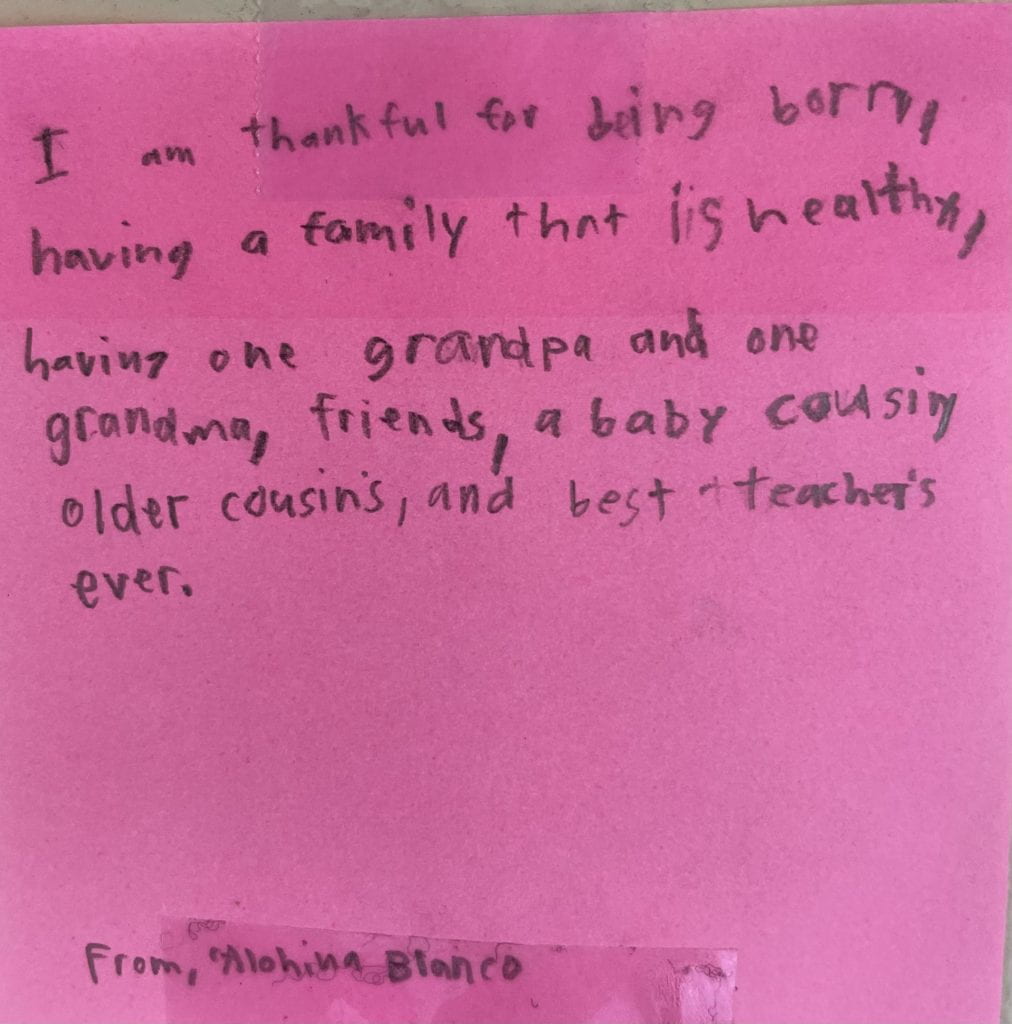
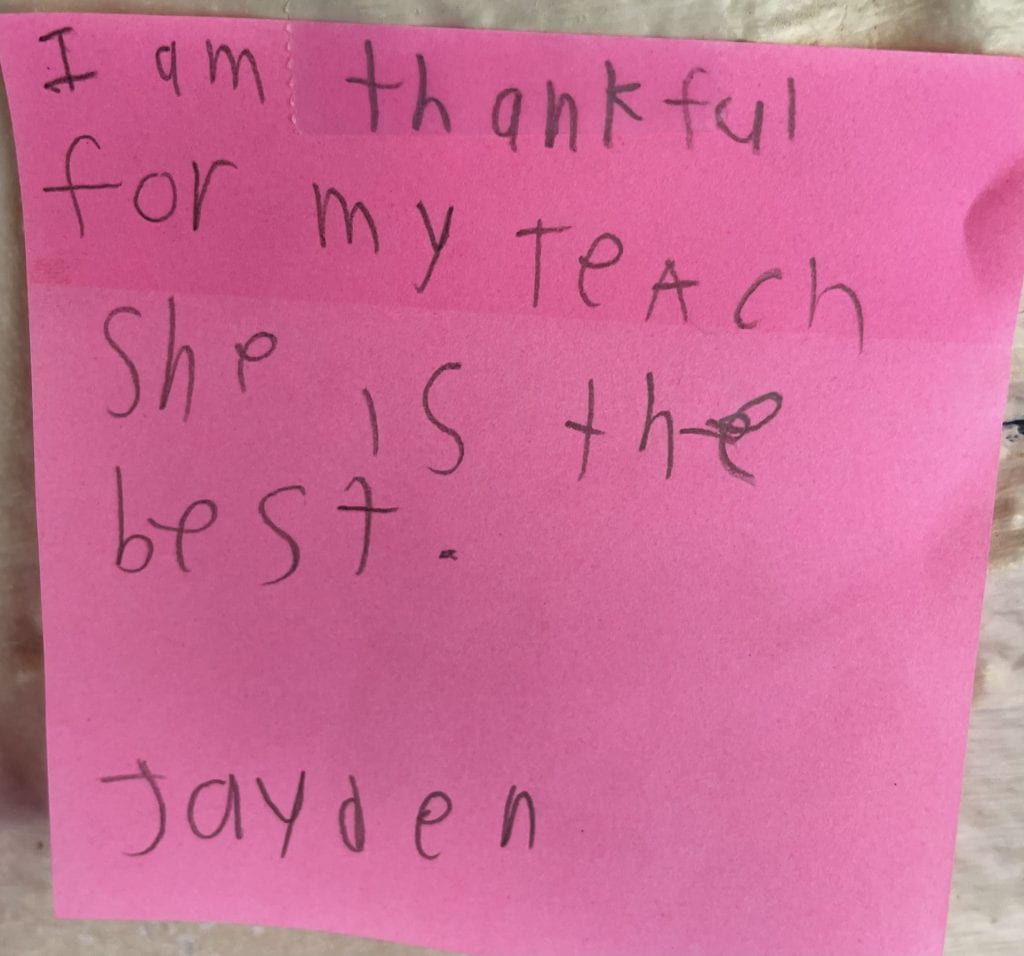
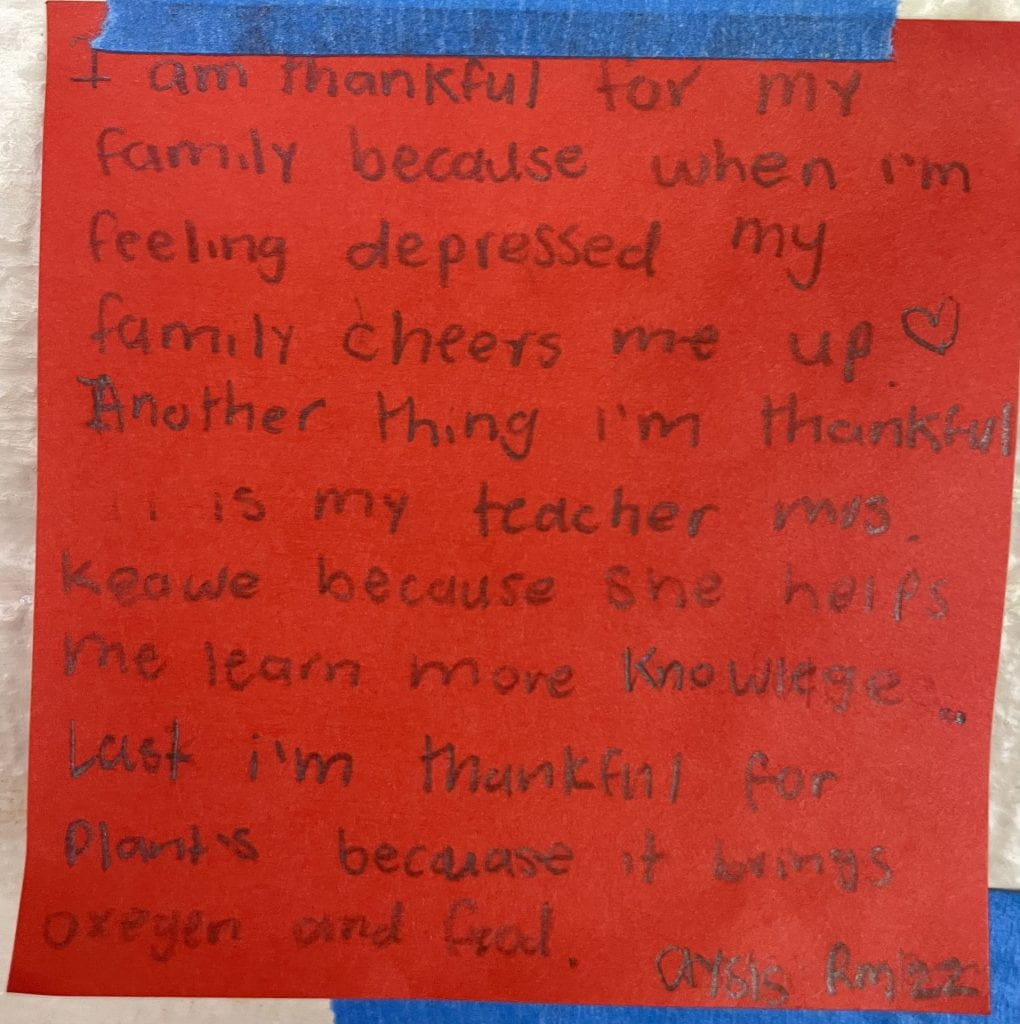
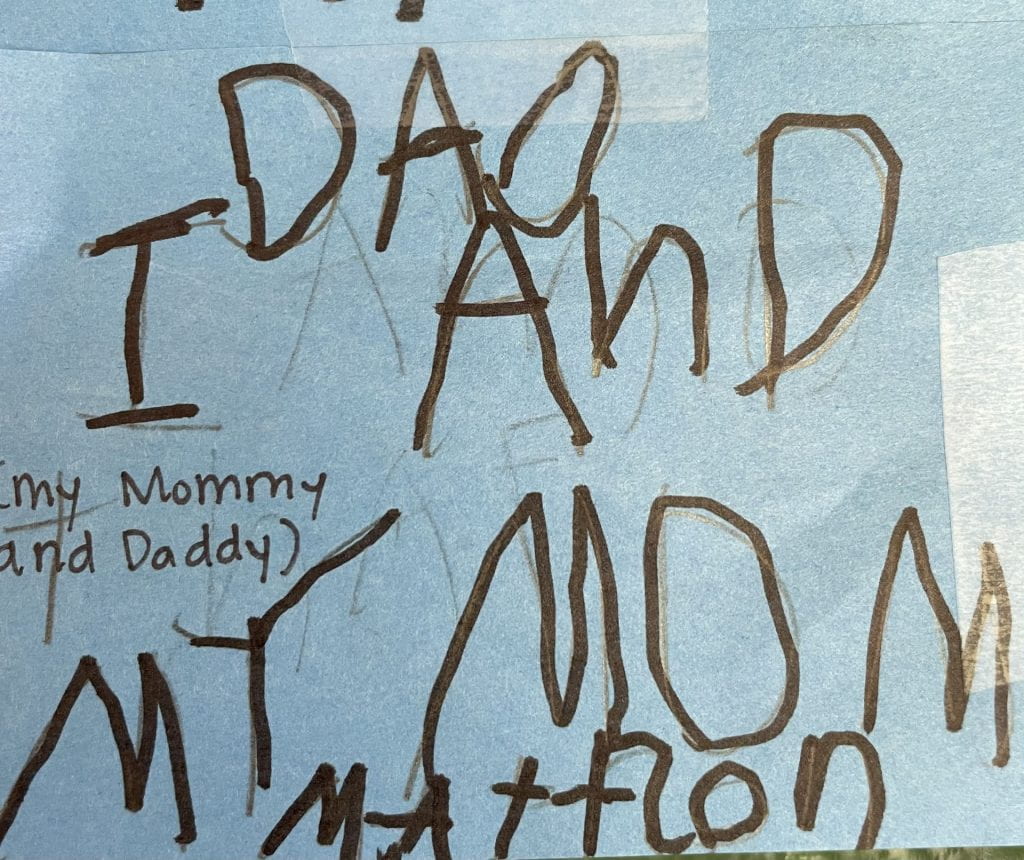

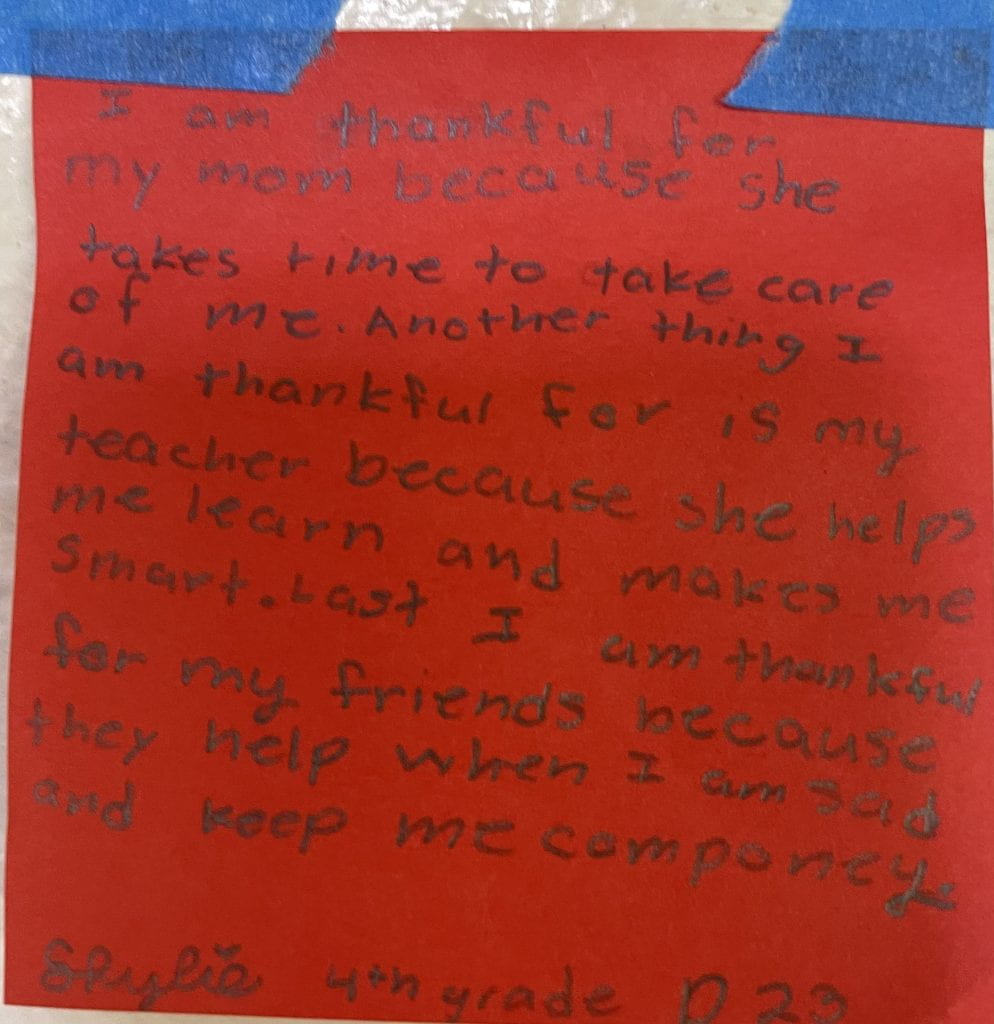
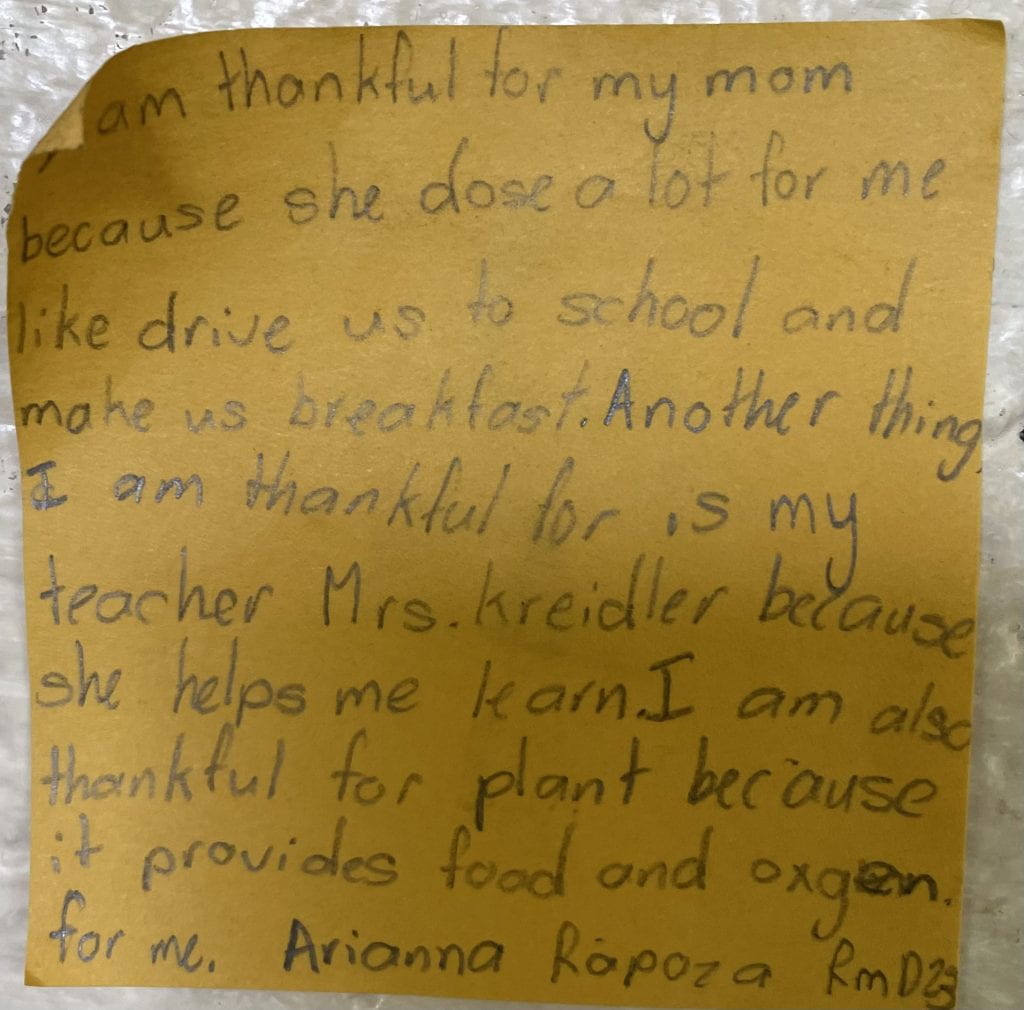
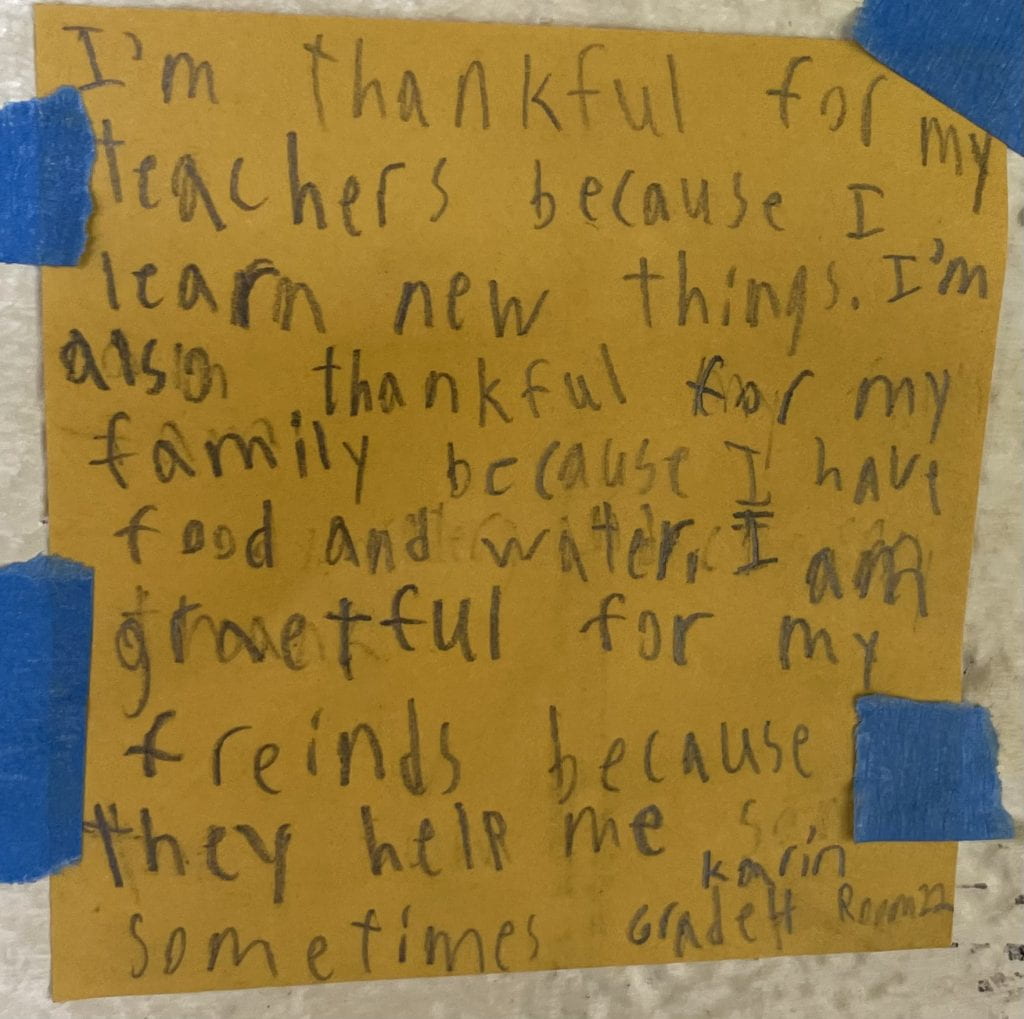
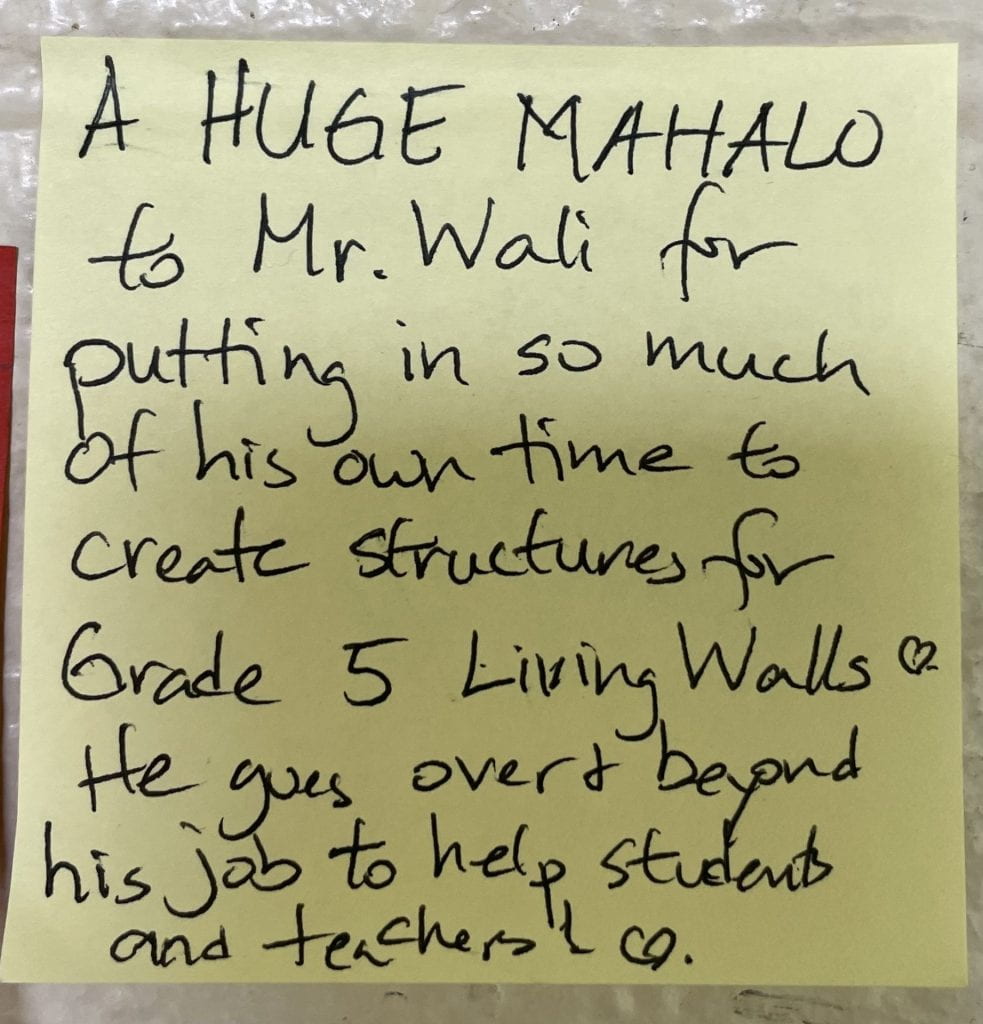

DANGER: WALKING WHILE LOOKING AT YOUR DEVICE
Our amazing volunteers at Mokulele have noticed that some students are looking at their devices as they cross the street, not paying attention to the on-coming traffic or hazards that might lie in their path. Please help us keep our keiki safe by joining us in teaching them to avoid looking at their devices while walking and to beware of the consequences.
COMPELLING READ: The Pandemic Disrupted Adolescent Brain Development
Emerging research shows the pandemic may be attributed to changes in the brains of adolescents nine – 17. These changes, consistent with high levels of stress affect neuroplasticity, the ability to learn new things, as well as deterring the development of language, cognition and social and emotional well-being.
Regardless the cause, we have seen an uptick in students struggling with their mental health. As educators and parents, we must consider how we can help students access resources if they are in need. For example, our school partners with Hazel Health, a licensed provider of free teletherapy services. We also have an amazing counseling staff that now includes a school social worker. If your have concerns about your child’s social and emotional well-being, please let us know.
CONTINUED PRACTICES:
NOʻAHUNA OF ALOHA
See Uncle Pono Shim explain the Noʻahuna, the esoteric meaning, of Aloha as taught to him by Aunty Pilahi, the Keeper of Secrets.
WEAR PINK FOR MAUI WEDNESDAYS
Join us in letting “that light, that divine inspiration that Aunty Pilahi Paki says is given to you at your very beginning, come through and let your ALOHA join with the ALOHA of the collective to bring about healing.”
DAILY VIRTUAL PIKO
At the Daily Piko, we share thoughts on the Aloha value for the week which helps us become centered and ready to learn. We begin at 8 AM everyday except Wednesdays.
UPCOMING EVENTS
| Wed, Nov 29, 2023, 5 PM | School Community Council Meeting Join by Zoom |
| Thu, Nov 30, 2023, 6:30 PM | KES Ohana Meeting Join by Zoom |
| Wed, Dec 13, 2023, 4:30 PM | Wellness Committee Meeting Join by Zoom |
| Wed, Dec 20, 2023 | Winter Classroom Paina end school at 2:05 PM (switch with 12/21) |
| Thur, Dec 21, 2023 | Winter Songfest end school at 1:15 PM (switch with 12/20) End of Quarter 2 |
| Dec 22, 2023 – Jan 5, 2024 | Winter Break Intersession – no school |
| Wed, Dec 27, 2023, 5 PM | School Community Council Meeting Join by Zoom |
| Mon, Jan 8, 2024 | Waiver Day #3 – No Students |